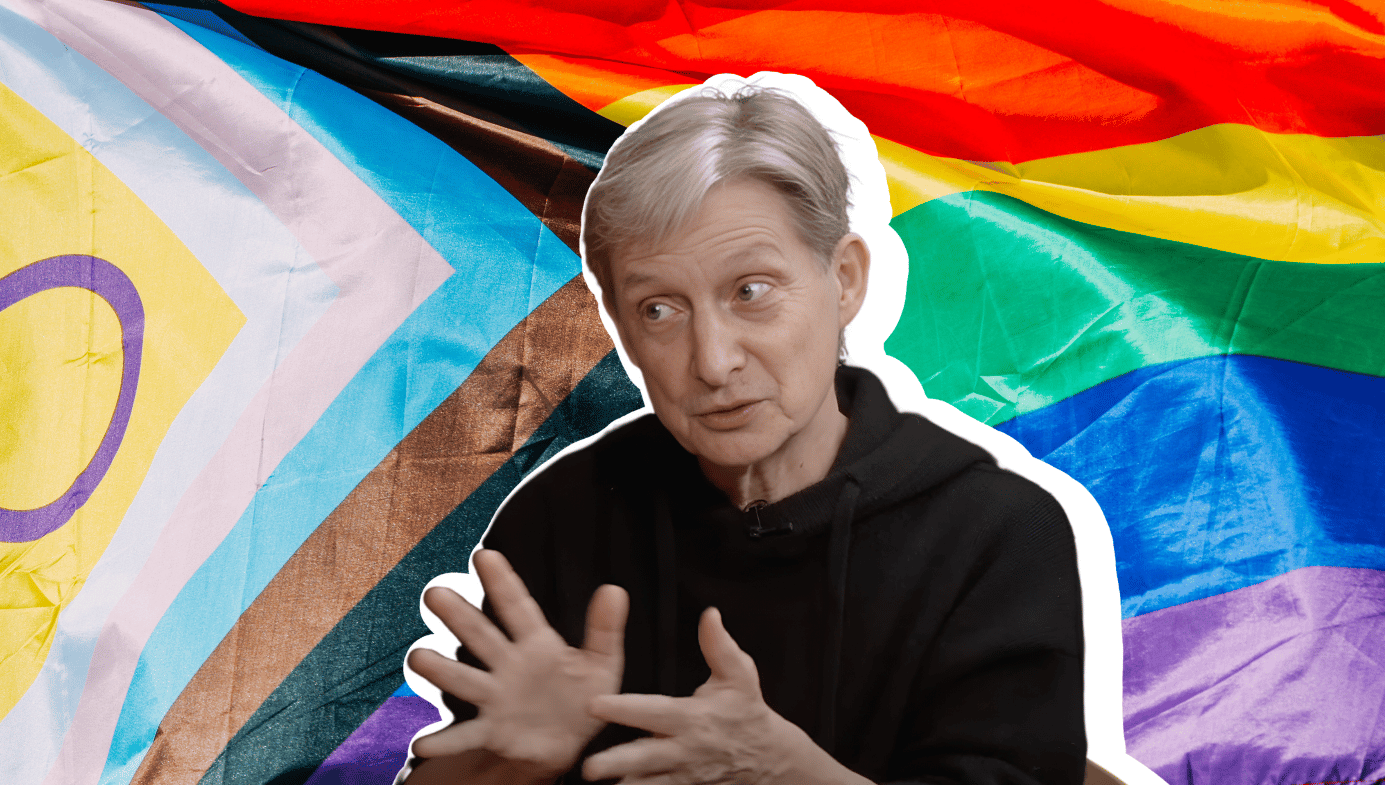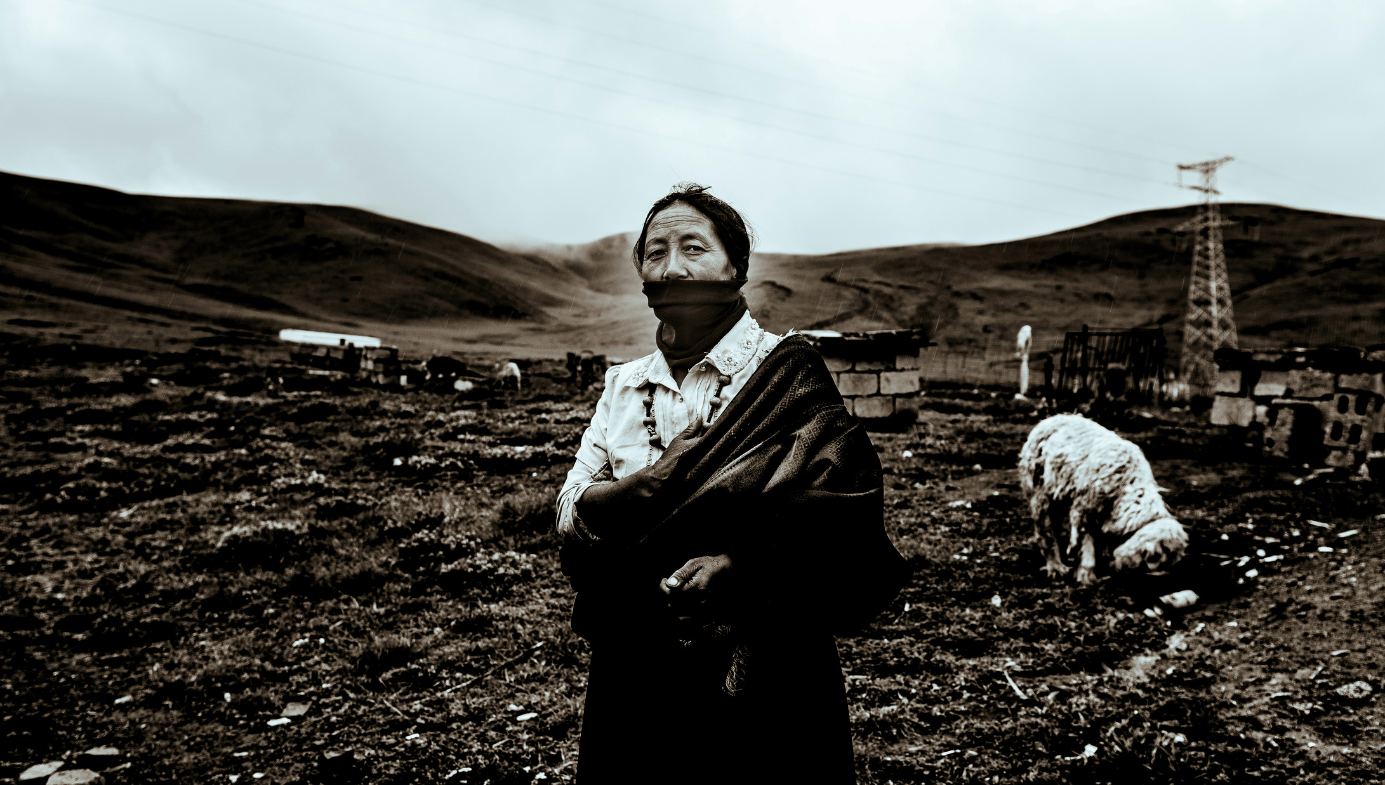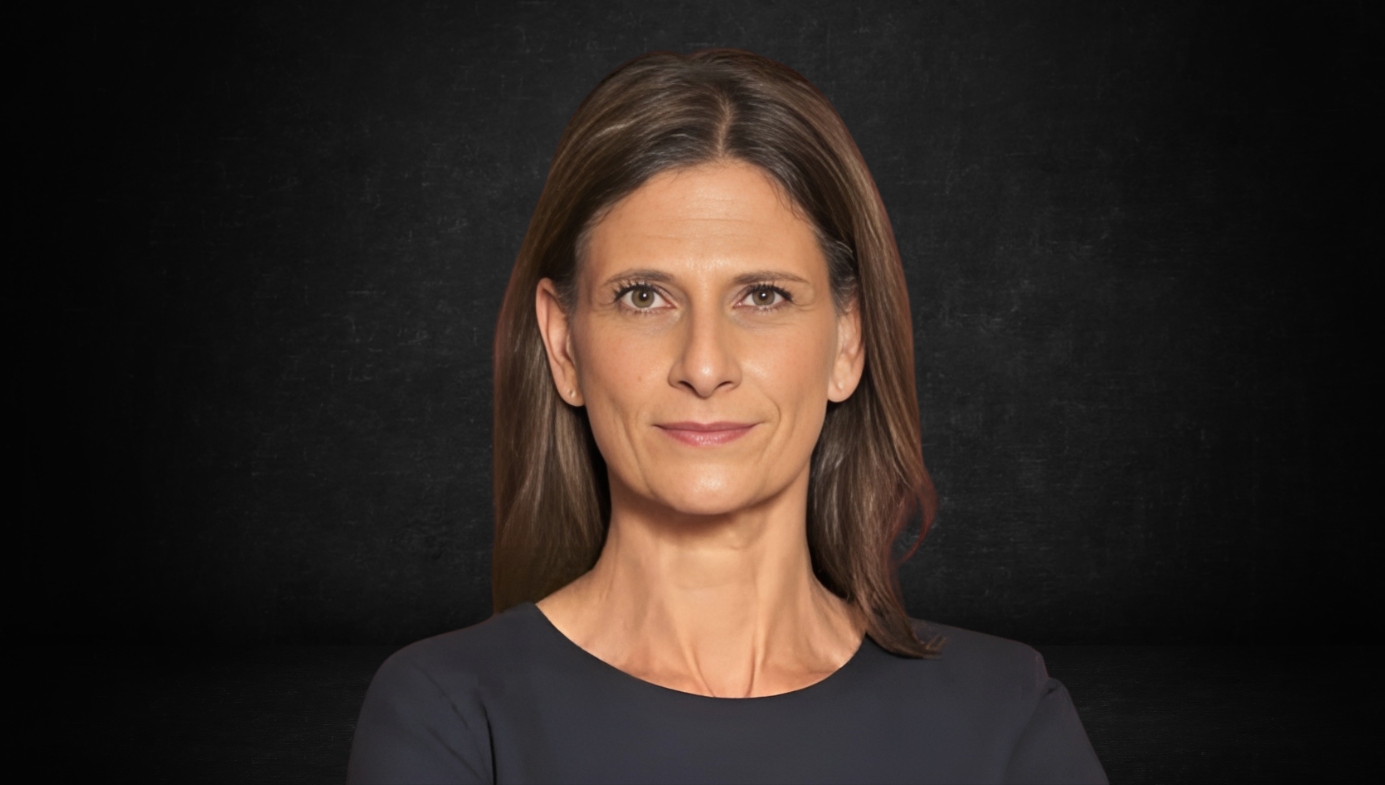Double Standards in the Gender Debate
Butler’s latest book is leftist political propaganda masquerading as the dispassionate work of an academic.

A review of Who’s Afraid of Gender by Judith Butler, 620 pages, Penguin (March 2024).
Philosopher Jason Stanley, the Jacob Urowsky Professor of Philosophy at Yale University, has endorsed Judith Butler’s latest book as follows:
Judith Butler is the most important philosopher working in the United States today, and the one whose legacy is most likely to survive the test of time. Here, in clear, precise prose, and with devastating analytical precision, they dismantle the global attack on ‘gender ideology,’ revealing it for what it is—an attack on democracy’s freedoms.
In light of Stanley’s excessive praise of Butler’s book, it seems fitting to use Stanley’s own theory of propaganda to comment on what’s going on in it. As I read the earlier chapters of Butler’s book, I repeatedly found myself pleasantly surprised by what she seemed to be saying. But as the book wore on, I soon discovered that her work actually undermines the ideals she professes.
We could see this as merely hypocrisy: Butler preaches what she does not practise. As moral vices go, hypocrisy is less evil and more annoying. But it is so consistently repeated it makes Butler’s book into leftist political propaganda masquerading as the dispassionate work of an academic—as a supposed exercise in what Stanley calls “analytical precision.”
As the political theorist Carl Schmitt wrote in 1932, “designating the adversary as political and oneself as nonpolitical (i.e. scientific, just, objective, neutral, etc.) is in actuality a typical … way of pursuing politics.” But it is not a typical way of pursuing truth, which is the job of an academic. If Butler were pursuing truth, however, she probably wouldn’t have written a 262-page speculation on the collective psychology of the global right and of ‘TERFs.’
In his 2015 book How Propaganda Works, Stanley introduces the idea of undermining propaganda, which he defines as “A contribution to public discourse that is presented as an embodiment of certain ideals, yet is of a kind that tends to erode those very ideals,” work that is “explicitly represented as embodying” a political ideal while engaging in a “call to action … that runs counter to … it.” Stanley cites W.E.B. Du Bois’s book Black Reconstruction in America: 1860–1880, in which Du Bois accuses the historians of 1935 of precisely this kind of propaganda. While paying lip service to the ideals of the discipline of history—which Du Bois defines as “truth and accuracy” and “faithfulness of detail”—these historians actually undermined them in the service of white “dominance and power.” As Stanley explains:
Du Bois challenges the then prevailing view, exemplified by the “Columbia School” of historians, John Burgess and William Dunning, that the end of Reconstruction was brought about by incapacity of freed Black citizens to govern themselves. Du Bois’s alternative account of the failure of Reconstruction is that white economic elites exploited the racism of poor whites to prevent poor whites and newly freed Blacks from joining together in a labour movement with unified class interests. Though it took several decades, the accuracy of Du Bois’s account of why Reconstruction came to an end has long since been widely acknowledged.
Du Bois’s chapter was called “The Propaganda of History.” By presenting themselves as historians, Burgess and Dunning would be assumed to be adhering to certain ideals, yet their work itself was motivated by their political aims, rather than by truth-seeking.
Butler is not hiding behind the ideals of an academic discipline. While she was trained as a philosopher, she does not use the methods of philosophy, and indeed given how politicised some disciplines have become, she could probably find one whose ideals she'd count as upholding. My point is more direct: throughout Butler’s book, she explicitly defends ideals that the book itself actively undermines. These ideals are opposing censorship, doing the reading, not believing in “phantasms,” and standing against “petty divisions.”

There is much talk in the book of the global right-wing’s attempted censorship of ‘gender’—where this means feminist speech, lesbian and gay education, sex education, and education about trans issues. Butler says that “Those who defend censorship, who make allegations of ideology under the rubric of ‘woke,’ are interested in maintaining doctrinal control in education, very often allying with parental rights over public education.” She is concerned that faculty are being fired for teaching “woke” subjects; bemoans the existence of restrictions “on what can be taught and who can teach it”; condemns bills that attempt to bar schools and public libraries from offering books on ‘gender’ subjects including “the theme of ‘homosexuality’”; laments the bans on drag performances; and more. Butler writes:
The harm censorship does is justified by the imagined harm it seeks to stop. This means that if education is to remain free of ideological control of the kind that censorship represents, we will have to educate ourselves about the ways that censorship works and the fear it seeks to stoke, so that we can dismantle the phantasm it creates, and even reverse the harm that it is now doing.
But is Butler against censorship per se—or only against the censorship of ‘gender’-related topics, as the right understands them? If it’s the latter, then she’s not upholding the ideal of free expression at all, she’s just invoking it in order to get what she wants politically, which is the protection of ‘gender’ from the apparent right-wing threat. (This is similar to the hypocrisy of people who are all for free speech when it’s their speech that is under threat but are happy to call for opinions they disagree with to be censored.) If Butler were against censorship altogether, we might expect her to comment on all the censorship that has been going on by those on her own side, of gender-critical ideas and research. All the tactics she objects to when they are used by the right against the left have also been used by the left against what she classes as the right (i.e. ‘TERFs’). I know, because I have been one of the left’s targets—my academic publisher has been urged to stop the publication of my gender-critical books, and there have been protests (which have included vandalism) on my campus against my philosophy course on feminism from a gender-critical perspective.
I do not believe for a minute that Butler is unaware of the censorship of gender-critical research by gender identity activists. In a footnote to Chapter 5, she shows that she is aware of the Gender Critical Research Network at the Open University; that institution’s antagonism towards the network led Jo Phoenix to take the university to court for constructive dismissal—a case she won. Despite her protestations, Butler is clearly not opposed to censorship at all—she is merely opposed to what she views as the censorship of the ‘good’ side by the ‘evil’ one. And she thinks she knows which is which.
Butler is aggrieved that her opponents aren’t reading more work in gender studies, given that these opponents criticize gender studies and in some countries have even moved to close gender studies departments. She writes, “Reading is not just a pastime or a luxury, but a precondition of democratic life, one of the practices that keep debate and disagreement grounded, focused, and productive.” So far, so true. She speculates that “the anti-gender advocates are largely committed to not reading critically because they imagine that reading would expose them—or subjugate them—to a doctrine to which they have, from the start, levied objections.” She even says that “To read in an academic way, much less critically, is to concede that there may be other views than those either found in scripture or propounded by religious leaders.” It does not seem to occur to her that this analysis might just as easily apply to the readers of her own earlier books, like Gender Trouble (1990) and Bodies That Matter (1993).
Up to this point, the book seemed promising—I even wondered if it would mark an end to trans activists’ refusal to debate this issue. If Butler modelled good academic behaviour by reading and engaging constructively with her opponents, perhaps that would set a new standard. Alas, it was not to be. Despite her early promise to “consider British debates on the matter of sex” and in particular “the argumentation of trans-exclusionary feminists such as J.K. Rowling, the Sex Matters organization, and the views of Kathleen Stock and Holly Lawford-Smith,” from those individuals she appears to have read only: the text of one of my YouTube talks; a Guardian article by Stock (which is about her starting the Lesbian Project, not a summary or defence of her gender-critical views); and a blog post by Rowling.
Stock and I have both written gender-critical books: her Material Girls (2021) and my Gender-Critical Feminism (2022) and Sex Matters (2023). Maybe if Butler had bothered to read these works, she wouldn’t have made such a hash of explaining what gender-critical research is. She writes that “Gender-critical research seeks to debunk forms of gender studies that rely on theories of social construction” and “seeks to rid institutions of higher education of an ‘ideology’ that it claims has damaged the field of gender studies.” But it does neither. No gender-critical academic is seeking to rid universities of gender identity ideology, we simply believe that we should have the right to present an alternative viewpoint in the form of gender-critical research. And no gender-critical academic I’ve ever met thinks gender identity ideology has damaged gender studies: as far as I understand it, that ideology is gender studies. (Some of us do complain that gender studies has displaced women’s studies, but that is a different matter).
If Butler had read my book Sex Matters, she might have avoided what is perhaps the greatest mistake in Who’s Afraid of Gender?, which is to view gender-critical feminism as a subset of right-wing ‘anti-gender’ ideology. In my chapter “Is Gender-Critical Speech Harmful Speech?,” I take up the accusation voiced by academics Ruth Pearce, Sonja Erikainen, and Ben Vincent that the gender-critical feminist opposition to “LGBTIQ-inclusive school education and positive media representations of trans people” comes from “anti-feminist and anti-trans discourses among right-wing Christians, with the Catholic Church acting as a major nucleating agent.” The authors argue that this right-wing view coalesces around the phrase ‘gender ideology,’ which has been “increasingly adopted by far-right organizations and politicians … They position gender egalitarianism, sexual liberation, and LGBTQ+ rights as an attack on traditional values by ‘global elites.’” While Butler does not cite Pearce et al. in her book, she makes a similar argument at length in her first five chapters. In my reply to Pearce et al., I distinguished between ‘gender ideology,’ their target, and gender identity ideology, the target of gender-critical feminists. They might sound the same but they are not: gender-critical feminism, being a type of feminism, is not opposed to gender egalitarianism, sexual liberation, or lesbian and gay rights. If this is the basis for conflating the two groups, it is flimsy indeed.
It's curious that Butler lumps together gender-critical feminists (or ‘TERFs’) with the Pope, Orbán, Erdoğan, Trump, and other right-wing villains, given that one of her favourite projects—at least in Gender Trouble and Bodies That Matter—is recognizing and trying to make comprehensible people who have been left out or misunderstood because they fall outside a simple ‘binary.’ For Butler, the ‘binary’ is usually male/female, and the ‘unintelligible’ outsiders are trans and intersex people. But here we have another ‘binary’: that of left and right, and the ‘unintelligible’ outsiders are gender-critical feminists. Who are these women, who come from across the political spectrum and include impeccably-credentialled leftists like Julie Bindel and J.K. Rowling, who nonetheless disagree with the leftist orthodoxy on trans issues? What could their reasons be? Is there a way to break down this binary, make these outsiders intelligible, and bring people together rather than dividing them further? Sadly, Butler takes exactly the opposite approach.
The big idea of Butler’s book is that ‘gender’—the blanket term by which she refers, on the right's behalf, to feminism, gay and lesbian rights, trans rights, sex education, etc.—is a “phantasm.” “Phantasm” is a term she has borrowed from the French psychoanalyst Jean Laplanche, and she uses it to mean something like a fantasy that has more social content than usual. The original idea refers to individuals in the state of infancy, but Butler wants to apply it to the unorganized collective that is the global right. She wants to “understand anti-gender as a phantasmatic scene.” She thinks what makes gender a phantasm is that people pour all their “fear of … destruction” into the receptacle of ‘gender,’ so they end up opposing ‘gender’ when what they really fear and oppose is, say, climate catastrophe. She writes,
In the United States at least, gender is no longer a mundane box to be checked on official forms, and surely not one of those obscure academic disciplines with no effect in the broader world. On the contrary: it has become a phantasm with destructive powers, one way of collecting and escalating multitudes of modern panics.
She mentions climate disaster, forced migration, war, loss of basic social services, systemic racism, and the murder “at appalling rates” of “women, queer people, and trans people, especially those who are Black or brown.” Taken on its own, this is an interesting idea: it seems that, for Butler, a phantasm is a bit like a scapegoat or a bogeyman (a recent review in The New York Times uses ‘bugaboo’), something that has come to embody all the fears and anxieties of certain (bad, right-wing) people. Perhaps there might even be ways to test this hypothesis, through sophisticated survey and interview techniques. (What are people who oppose ‘gender ideology’ really afraid of? How do they feel about feminism, gay and lesbian rights, trans rights, sex education, etc.? Would they feel differently about these topics if their real fears were properly addressed?)
But Butler doesn’t seem to be against phantasms in general—just against the alleged right-wing phantasm of ‘gender.’ In fact, she promulgates some phantasms of her own. As Katha Pollit points out in The Atlantic, in an article which appears to have originally been titled “The Phantasms of Judith Butler,” Butler’s own phantasm is ‘fascism.’ Pollit writes “Like the gender phantasm, brandishing the word fascism functions much like the stance that trans activists have taken of insisting that their positions are not up for debate.”
Butler writes that “continuing the ‘anti-gender ideology’ discourse places contemporary ‘radical feminists’ in a position of woeful complicity with the key aims of new fascism.” But we are never quite told what this ‘new fascism’ is—just that “central to” it are “vicious attacks on women, trans people, gay and lesbian people, Black and brown people.” ‘Fascism’ apparently has something to do with “the language of eradication,” and with “nationalism” and “racism”—but we are not told how opposing ‘gender identity ideology’ is related to any of these things. I suspect that Butler is making the common mistake of conflating ontology and identity: i.e. thinking that to deny the validity of someone’s self-proclaimed identity is to deny that person’s ‘existence.’ She talks about the gender phantasm “denying the very existence of others, stripping them of rights, refusing their reality”; and says that “the denial of trans rights to self-determination sends trans people back to their deadnames, denying their very existence, all the while laying claim paternalistically to know the true existential reality of trans people better than trans people do themselves.” Using the word ‘existence’ makes the idea of ‘eradication’ seem more credible, but that credibility disappears once we see that ‘existence’ is mere hyperbole for ‘subjective sense of self.’
If we should be against phantasms in general, then surely we should be against both the right-wing phantasm of ‘gender’ and the left-wing phantasm of ‘fascism.’ Fascism does exist, of course, just as there are things that can be gathered under the heading of ‘gender’ (like feminism). But not everything Butler doesn’t approve of is fascism, and she shouldn’t pour all her fears and anxieties (not to mention mere dislikes) into the receptacle of ‘fascism’ and allow them to be transformed into ‘anti-TERF’ and anti-the entire right sentiment. (Other left-wing feminists would also do well to consider this point).
In the conclusion of the book, Butler declares that “It is no time for any of the targets of this movement to be petty and divisive, for to defend gender studies and the importance of gender to any concept of justice, freedom, and equality is to ally with the fight against censorship and fascism.” Way back in the introduction, she acknowledged that “Coalitions are never easy,” and that “They involve antagonistic encounters and can be destroyed by internecine cruelties.” She said explicitly that “Coalitions do not require mutual love,” “only a shared insight that oppressive forces can be defeated by acting together.”
So why, then, has she written a whole book about ‘gender’ in which a group of feminists are included among the enemies of such an alliance/coalition? Is it not ‘petty and divisive’ of her to refuse to even try to understand, and help to resolve, the disagreements between feminists, who should be natural allies, instead of simply declaring some of them covert supporters of the enemy? Again, it seems that standing against petty divisions is an ideal for her opponents alone. Gender-critical feminists should stop being “petty and divisive” by caring about the displacement of sex and gender by gender identity, but gender identity theorists need not stop being “petty and divisive”; they can continue to refuse to enter into any discussion of the topic. Yet again, Butler professes an ideal while actively undermining it.

The book is a fascinating artefact. It is extraordinary that such a distinguished professor can live in such a simple moral universe; that an academic at Berkeley can be so sloppy with her writing and citations; that a supposedly scholarly analysis of a global political trend can turn out to be no more than a thinly-disguised piece of political propaganda; that someone who has been writing about gender since at least 1990 doesn’t seem to know what ‘gender’ is. All this just proves that academics aren’t necessarily experts that readers should defer to—even if they hold prestigious university positions or have written numerous previous (incomprehensible) books.












